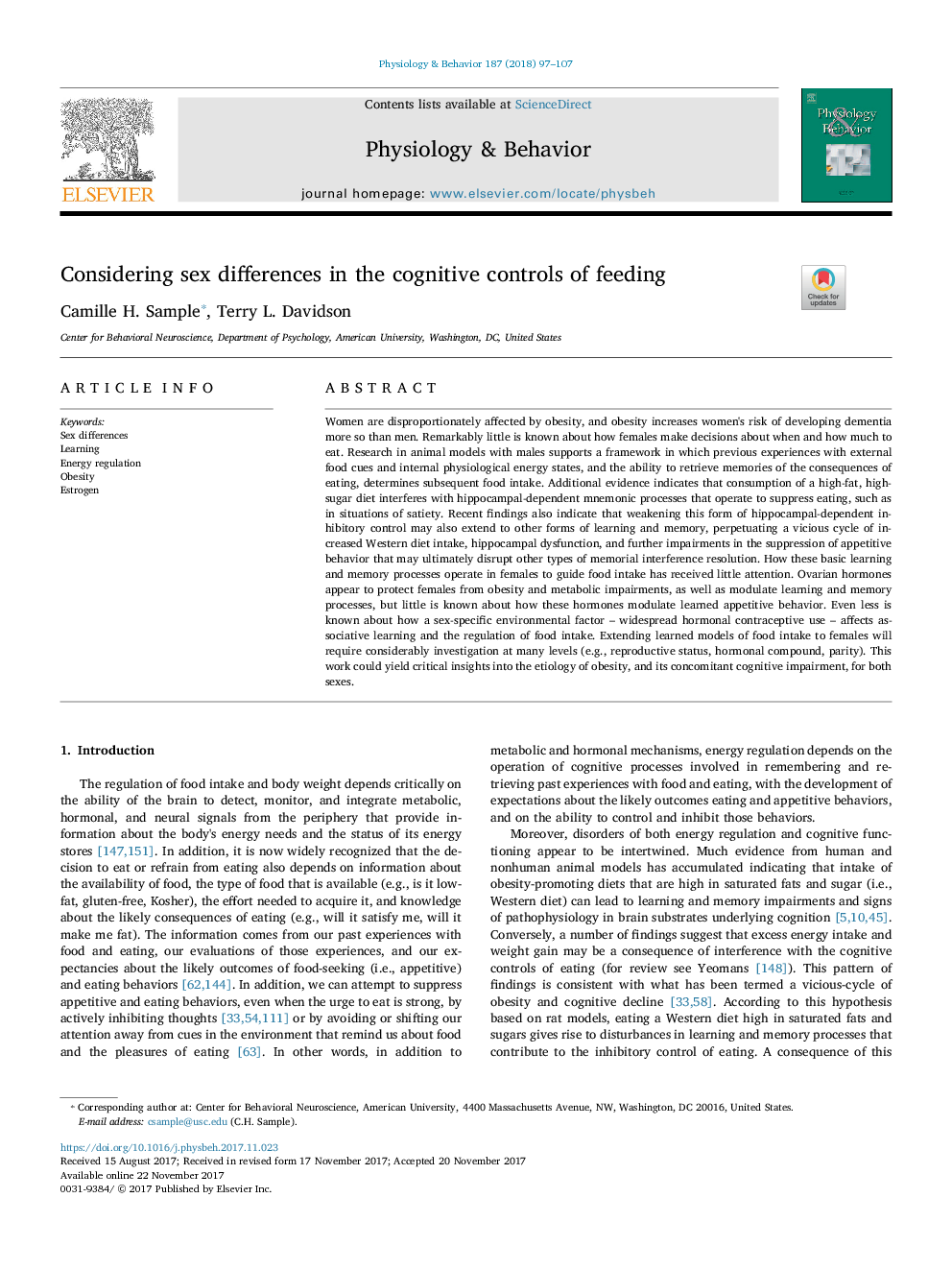ترجمه فارسی عنوان مقاله
با توجه به تفاوت جنسیتی در کنترل شناختی تغذیه
عنوان انگلیسی
Considering sex differences in the cognitive controls of feeding
| کد مقاله | سال انتشار | تعداد صفحات مقاله انگلیسی |
|---|---|---|
| 125899 | 2018 | 11 صفحه PDF |
منبع

Publisher : Elsevier - Science Direct (الزویر - ساینس دایرکت)
Journal : Physiology & Behavior, Volume 187, 1 April 2018, Pages 97-107
ترجمه کلمات کلیدی
تفاوت های جنسی، یادگیری، مقررات انرژی، چاقی، استروژن،
کلمات کلیدی انگلیسی
Sex differences; Learning; Energy regulation; Obesity; Estrogen;

